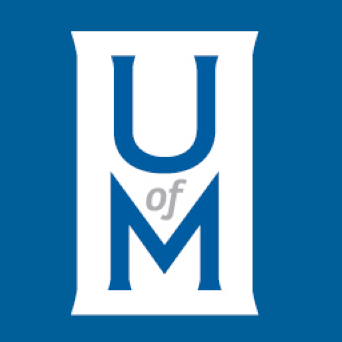 University of Memphis/Facebook
University of Memphis/Facebook
The University of Memphis took steps into the future of health care and transportation recently with a $5.9 million federal grant and a new research center.
The National Institutes of Health (NIH) awarded the grant to a group at the U of M focused on artificial intelligence (AI), mobile computing, wearable sensors, privacy, and precision medicine. Think of the way an Apple Watch can detect falls or monitor a heart rate; this group works to expand the idea into applications that could help people quit smoking or to adapt a healthier diet.
It’s a national group from U of M, Harvard University, Georgia Institute of Technology, Ohio State University, the University of Massachusetts-Amherst, the University of California at Los Angeles (UCLA) and the University of California at San Francisco. The group is called the mHealth Center for Discovery, Optimization & Translation of Temporally-Precise Interventions (mDOT) and will be headquartered at the MD2K Center of Excellence at the U of M. 
“Researchers and industry innovators can leverage mDOT’s technological resources to create the next generation of (mobile health, mHealth) technology that is highly personalized to each user, transforming people’s health and wellness,” said Santosh Kumar, mDOT’s, director of MD2K Center of Excellence, and U of M computer science professor.
All of the work takes aim at the rising cost of healthcare spending for patients with chronic diseases, many of which are linked to daily behaviors and exposures like dietary choices, sedentary behavior, stress, and addiction.
The U of M also created the Center for Transportation Innovation, Education and Research (C-TIER) to shape issues affecting the country’s multimodal transportation system and “to increase its economic competitiveness, and reduce economic, racial, and gender inequality.”
“In recent years, the transportation sector has seen introduction of disruptive technologies such as connected autonomous vehicles, battery electric vehicles, ride-share and mobility enhanced travel to make cities more safe, efficient, resilient, and environmentally friendly,” said Dr. Sabya Mishra, an U of M civil engineering professor who will serve as the center’s director. “Memphis is one of the national hubs of transportation.
“There is a need for interdisciplinary research at the University of Memphis to address the impact of innovative technologies, and forthcoming newer challenges.”
C-TIER’s work will improve mobility, accessibility, and safety and focus on transportation sustainability that will promote “smart, equitable cities” and improve efficiency of transportation systems that move freight and people.